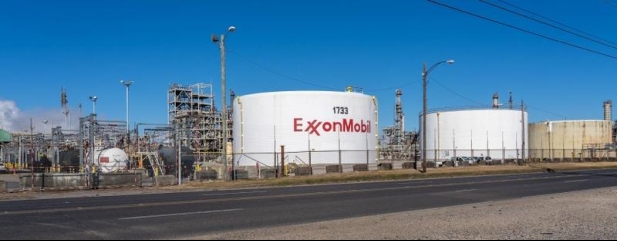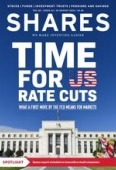Archived article
Please note that tax, investment, pension and ISA rules can change and the information and any views contained in this article may now be inaccurate.
What could happen with oil prices and why investors should care

The recent escalation between Israel and Lebanese militant group Hezbollah offered the latest reminder of what a tinderbox the Middle East is right now and the implications that has for oil prices.
The black stuff moved back through $80 per barrel after a period of weakness, offering a reminder of why forecasting oil prices is often a fool’s errand.
Nonetheless, there are plenty of professionals who are willing have a go. Analysts at Bank of America reckon oil prices will dip a little from the $83 per barrel they averaged across 2023 and 2024 (to date) to around $80 per barrel in 2025. Although this prediction is heavily caveated.
‘There are plenty of unknowns. First, Middle East tensions could drive prices much higher if volatile geopolitics lead to energy infrastructure damage. Second, our central scenario encompasses lower US interest rates, a weakening dollar, and China stimulus heading into 2025. This is a positive cyclical macro backdrop that should lend support to oil prices. Third, energy prices are already cheap relative to history, particularly when adjusted for inflation, and oil is cheap versus other thermal fuels.’
There are several reasons why a move higher in oil matters. Most broadly, in global economic terms, a high oil price acts as a tax on growth as businesses and consumers bear the financial impact of higher energy prices.
You might, or might not, get the same level of GDP but it will come at a higher cost.
It is also important for investors who have exposure to the FTSE 100, given the continuing heavyweight status of BP (BP.) and Shell (SHEL).
But the energy transition will change all this right? As the world weans itself off the black stuff this kind of volatility will be a thing of the past.
Not according to ExxonMobil (XOM:NYSE). It’s obviously a partial viewpoint but the US oil giant argues pretty robustly that crude demand will actually be virtually unchanged by 2050 and that if industry investment is curtailed it will result in a big energy price shock.
After the surge in oil and gas prices following the invasion of Ukraine in 2022, Western governments are increasingly cognisant of the risks associated with such a shock and the inflationary pressures this could help to unleash.
Obviously, environmental concerns will come into play too but long-term thinking isn’t always a strength of politicians looking at four or five-year election cycles. All told, investors may well have to keep an eye on oil prices for some time to come.
Important information:
These articles are provided by Shares magazine which is published by AJ Bell Media, a part of AJ Bell. Shares is not written by AJ Bell.
Shares is provided for your general information and use and is not a personal recommendation to invest. It is not intended to be relied upon by you in making or not making any investment decisions. The investments referred to in these articles will not be suitable for all investors. If in doubt please seek appropriate independent financial advice.
Investors acting on the information in these articles do so at their own risk and AJ Bell Media and its staff do not accept liability for losses suffered by investors as a result of their investment decisions.
Issue contents
Ask Rachel
Feature
Great Ideas
News
- Watkin Jones shares pummeled on cut to guidance
- Beeks Financial Cloud scales new all-time high after record results and contract extension
- Powell signals start of interest rates cuts at Jackson Hole
- Will UK shop price deflation open the door to a September rate cut from the Bank of England?
- Temu parent PDD sends warning on Chinese consumers
 magazine
magazine








